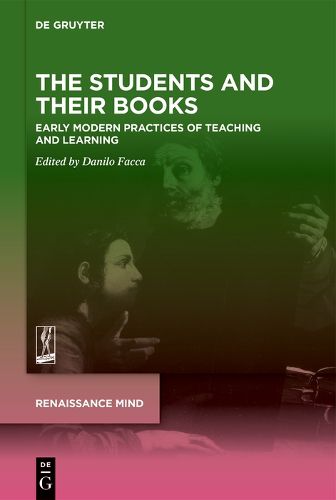Readings Newsletter
Become a Readings Member to make your shopping experience even easier.
Sign in or sign up for free!
You’re not far away from qualifying for FREE standard shipping within Australia
You’ve qualified for FREE standard shipping within Australia
The cart is loading…






The topic of this volume is the teaching and learning practices in the major and minor academic centers of renaissance Europe and their relevance for early modern intellectual history. Academic knowledge is here regarded not as a finished product but as a process, induced by multiple factors and several conditions: the personalities and intellectual profiles of teachers and learners, the dialectic between their respective interests and roles, the institutional context, from the immediate one given by the particular school or university, with their courses and curricula, to the more remote one given by governing political power or surveilling religious authority, or the interplay between the two. Last but not least, one should consider the several impulses of an epoch that seem to impart to the historical course a sudden acceleration, inducing decisive, sometimes disruptive, changes to intellectual development: the spread of humanistic culture, the religious reformation and its consequences, the encounter with new epistemologies, the access to education of new social subjects, and - behind all these and as their common catalyst - the progressive establishment of the press as a means of learning consolidation and dissemination.
$9.00 standard shipping within Australia
FREE standard shipping within Australia for orders over $100.00
Express & International shipping calculated at checkout
Stock availability can be subject to change without notice. We recommend calling the shop or contacting our online team to check availability of low stock items. Please see our Shopping Online page for more details.
The topic of this volume is the teaching and learning practices in the major and minor academic centers of renaissance Europe and their relevance for early modern intellectual history. Academic knowledge is here regarded not as a finished product but as a process, induced by multiple factors and several conditions: the personalities and intellectual profiles of teachers and learners, the dialectic between their respective interests and roles, the institutional context, from the immediate one given by the particular school or university, with their courses and curricula, to the more remote one given by governing political power or surveilling religious authority, or the interplay between the two. Last but not least, one should consider the several impulses of an epoch that seem to impart to the historical course a sudden acceleration, inducing decisive, sometimes disruptive, changes to intellectual development: the spread of humanistic culture, the religious reformation and its consequences, the encounter with new epistemologies, the access to education of new social subjects, and - behind all these and as their common catalyst - the progressive establishment of the press as a means of learning consolidation and dissemination.